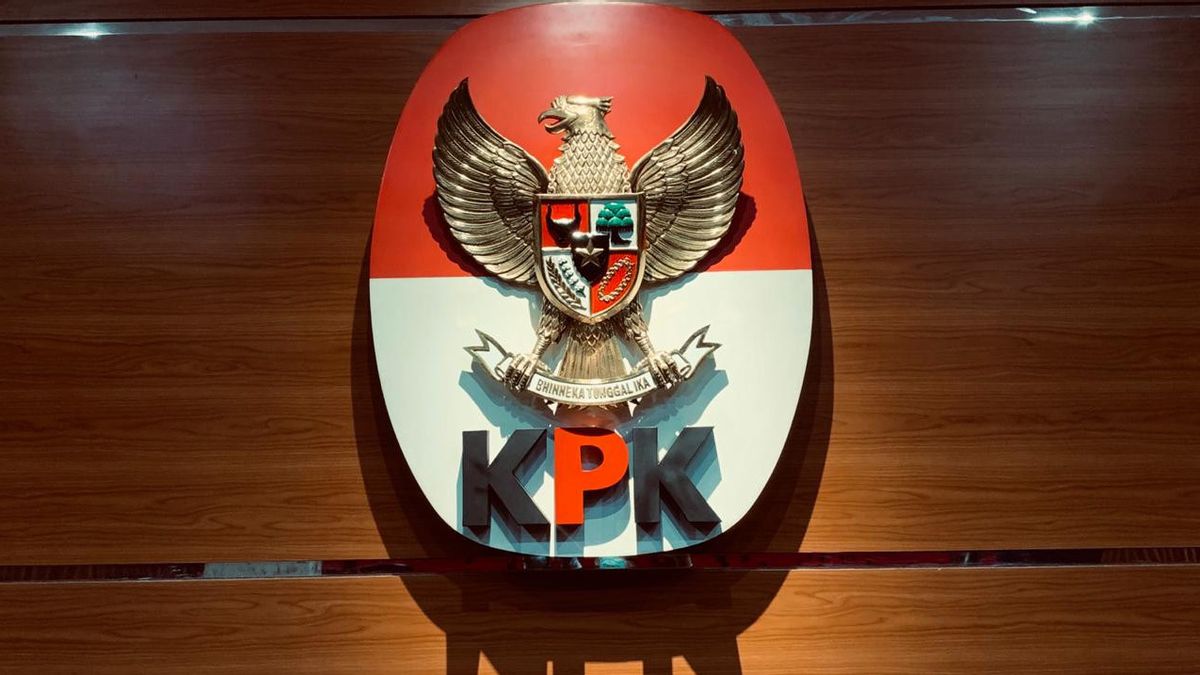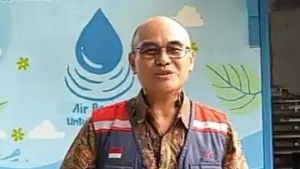JAKARTA - The Corruption Eradication Commission (KPK) has denied that its performance has declined, as stated by the Indonesia Corruption Watch (ICW). Not only that, this institution also regrets that the data used to assess them is old data.
Through a press conference on Sunday, April 18, ICW researcher Wana Alamsyah explained the assessment of law enforcers in handling corruption cases and one of them is the KPK. This assessment is based on data obtained by summarizing official information on law enforcement websites, as well as news reports which are then analyzed descriptively.
As a result, ICW then gave a red paper on the KPK's performance in 2020. In fact, the anti-graft commission's performance this year is considered to be the worst since 2015.
"The KPK's performance has experienced a very significant decline in 2020. This is the lowest point when the KPK is investigating corruption cases," said Wana.
This decline occurred because in 2020, there were only 15 cases that entered the stage of investigation and determination of suspects from the existing 120 cases. Even though in the previous year, namely 2019, the KPK handled 62 corruption cases.
In addition, the anti-graft commission in 2020 is also considered to have handled more cases of inheritance from the previous leadership period. "Most of the prosecution of corruption cases carried out by the KPK was the result of the OTT, namely seven cases and the development of cases totaling seven cases," he said.
"Meanwhile, only one case was investigated in 2020," added Wana.
Not only that, ICW also considered that the KPK was slow in developing cases and dismantling the actors behind a corruption case. Not only that, the professionalism of the KPK is also considered poor.
This is because the investigator's assignment letter to investigate a corruption case is often leaked to external parties. Even though this is considered dangerous for investigating corruption cases.
"The leaks of warrants in several cases handled by the KPK opened up space for perpetrators to run away, hide evidence, or potential intimidation and terror," said Wana.
"The leak has the potential to occur at the level of the KPK or the supervisory board," he added.
Martial Arts Corruption Eradication CommissionThe various assessments and data presented by Wana were later regretted by the KPK. Through the Acting Spokesperson for the Corruption Eradication Committee Ali Fikri, the anti-graft commission even said that the data used by the anti-corruption activist group was incorrect.
"We regret the data used by ICW to draw conclusions and have been published. The data is apparently only from the publication data of the KPK in the field of prosecution in the first semester, namely June 2020," Ali said in response to ICW's statement, Monday, April 19.
He then explained that throughout 2020, the KPK had a target of handling 120 corruption cases. "Of these, 111 investigations were realized, 91 investigations with 109 suspects, 75 prosecutions, 92 cases with permanent legal force and 108 cases that have been executed," Ali said in his written statement, Monday, April 19.
This number, he said, did not include the remaining 117 cases that started before 2020. "Thus in 2020 the total number of cases handled by the KPK will be 208 cases," he said.
Even so, Ali did not deny that the COVID-19 pandemic also made it difficult for the KPK. This is because the anti-profit commission must follow the social restriction policies that have been established by the government.
"The policy of large-scale social restrictions requires the KPK to restrict employees from carrying out their duties," he said.
"However, this policy is an effort to protect KPK personnel from the spread of the COVID-19 epidemic," he concluded.
The English, Chinese, Japanese, Arabic, and French versions are automatically generated by the AI. So there may still be inaccuracies in translating, please always see Indonesian as our main language. (system supported by DigitalSiber.id)













